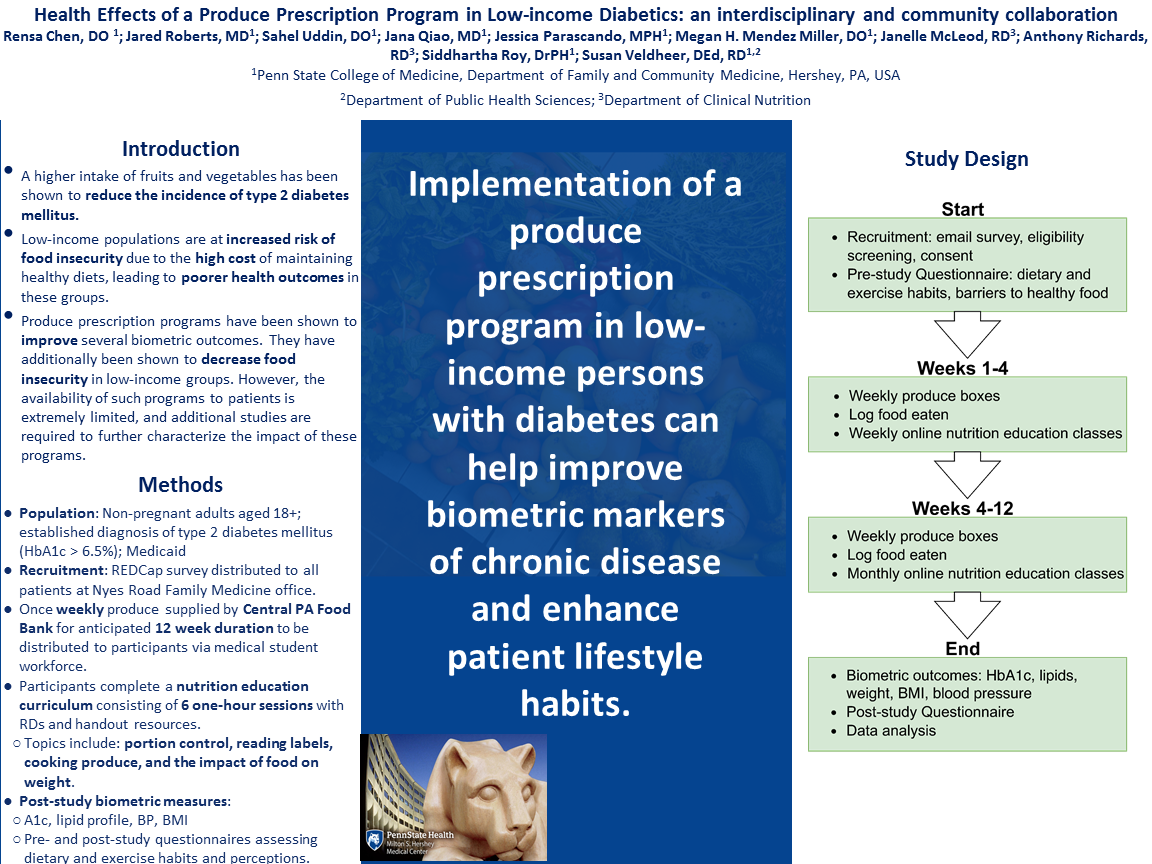PRP040: Health Effects of a Produce Prescription Program in Low-income Diabetics: an interdisciplinary and community collaboration
Sahel Uddin, DO; Rensa Chen, DO; Susan Veldheer, RD, DEd; Jessica Parascando; Siddhartha Roy, DrPH, MPH; Jana Qiao, MD; Jared Roberts
Context:. There exists food deserts across America, which subjugates individuals to unhealthy foods that create metabolic disease. This tends to affect low-income individuals more so than affluent. If the barrier to healthy food could be alleviated, could this disproportion be partially alleviated? The strength of primary care is in its ability to provide holistic care and to address the socioeconomic factors that affect health. By understanding the effect barriers have on well-being, primary care physicians can address and work with patients to tackle these barriers and create a positive trajectory for health. Objective: The primary objective is to determine whether providing a prescription for a produce program would lead to better health measures, specifically: BMI, blood pressure, hemoglobin A1c, cholesterol levels. We will additionally measure the perception of dietary change and exercise habits after partaking in the program. Study Design and Analysis: Quasi-experimental design. Setting: Primary care community based. Population Studied: Non-pregnant adults aged over 18 years old with an established diagnosis of Type II diabetes (HbA1c> 6.5%) and an annual income at 150% of federal poverty level or less, with an aim of around 40 participants. Intervention: Participants will partake in a 12 week intervention program in which they will receive a once weekly box of produce. They will also participate in an online nutrition education curriculum held by registered dieticians. For the first four weeks, these sessions will be weekly, and for the remaining eight weeks, monthly. These sessions will cover portion control, reading labels, cooking produce, and impact of food on weight. Outcome Measures: The primary outcomes include blood pressure, LDL, HDL, triglycerides, cholesterol, HbA1c, blood pressure, BMI.. We will also be assessing the perception of healthy habits and self reported changes in exercise behavior after completion of the intervention. Results: We anticipate that after completion of the intervention, we will measure positive health outcomes. This includes: reductions in BMI, HbA1c, blood pressure, cholesterol levels. We also anticipate that participants will have positive perceptions of healthy habits and will be more inclined to exercise at a greater frequency than prior to the intervention.

Jack Westfall
jwestfall@aafp.org 11/21/2021This is a very important topic and research study. really appreciate the central impact panel in the poster. Nice work. Thanks